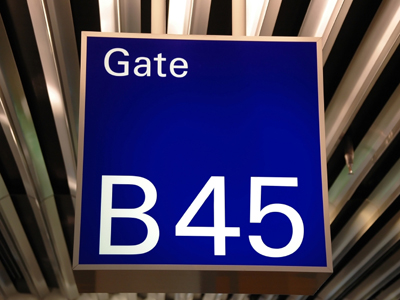
Quicker Than on Foot - Travel Words and Terms
Quiz playing is a wonderful way to increase your knowledge of English as a Second Language. Remember that all of our ESL quizzes have titles that are both friendly and serious at the same time… In the case of this quiz you might like to tell your friends about “Quicker Than on Foot” but no doubt your teachers will talk about the “Travel Words and Terms quiz”! If you hear a specific term and you want to find a quiz about the subject then just look through the list of quiz titles until you find what you need.
You need to learn travel words and terms if you want to effectively travel around England. It is interesting to walk around while you are in Britain, but there are many other faster ways to travel, 'quicker than on foot'. In this Quiz we will test your knowledge on travel words and terms - see if you are ready to use them.
Any moving vehicle on a public road after dark must have ...
'Passengers for ... ... BA123 should proceed to ... ... no.45.'
You would not go directly to the plane, but to a 'boarding gate' where staff will check your papers before they let you move into the aircraft.
As we drive on the left of the road in Britain, the traffic in a ... ... goes ... ... .
There is an 'orbital motorway' round the outside of London, called the M25: if you really wanted to (though, why would you?), you could drive round and round it, because it is more or less like a great big ring that goes on and on forever. When ~ as sometimes happens ~ there is an accident or some other problem with the traffic, the radio news will say 'Expect delays at Junction X on the clockwise (or anticlockwise) M25', to identify in which direction the road is blocked. With most other, 'straight' motorways they would say 'northbound' or 'westbound', or whichever direction it was.
Have you ever ... ... Newcastle?
If you can see ... ... lines along the side of the road, they mean you are not allowed to ... ... your vehicle.
We feel you should know this before you start driving a hire car on our roads!
For reasons of airline security, you ... ... millilitres of liquid in your cabin baggage.
Make sure you know the difference between:
'May' and 'Must' (and 'may not' and 'must not', though these two mean more or less the same);
'More' and 'less';
'FifTY' (= 50) and 'FifTEEN' (= 15).
'The ... ... now standing at platform 4 is the 15:15 service for Portsmouth, stopping at Woking and Guildford.'
Now that we've had the Channel Tunnel for twenty years or so, we're quite used to going back and forth to the mainland of Europe without ... ...
Well done to all of you who have travelled to Britain from abroad, even if you were uncomfortable on the way. We hope your visit is worth the effort!
'Central Railways PLC would like to ... ... the delayed arrival of this train.'
If you are waiting for a bus to stop, you should ... ... as it comes along.
Answer 3 would be right if you were already on board ( = inside ) the bus, but this question started by saying you were waiting for the bus (... to come and pick you up), so you were not yet travelling on it at that time.
Ready for more?
not all...
quizzers. Try to win a coveted spot on our Hall of Fame Page.







